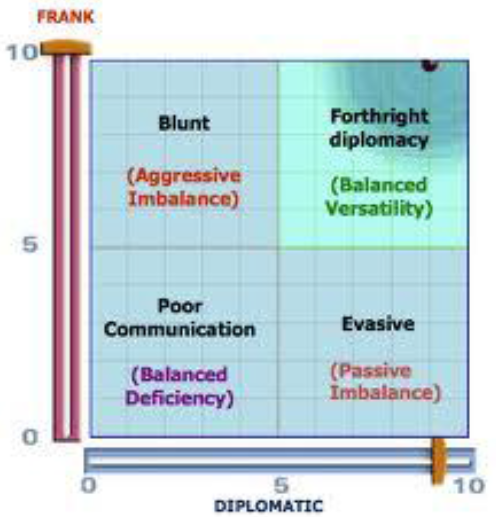Relevance of Psychometric assessments in Executive coaching
Psychometric testing is now used by over 80% of the Fortune 500 companies in the USA and by over 75% of the Times Top 100 companies in the UK. Tests are used by many employers across most sectors, including IT, engineering, energy, banking, consultancy, accountancy, the civil service and other public sector, fast moving consumer goods and retail.
In such scenarios it may be mandated to Executive coaches by the clients to work with these reports to help the individual executive chalk out their path.
Executive coaches may also choose to bring in their own psychometric tests as they find it appropriate to the situation.
Usage of the right psychometric tools would aid the Coach to understand the executive much faster. These tools also help the executive to draw his own linkages and conclusions based on the reports. These would also help the executive gain perspectives of how one aspect of his behavior impacts which aspect of performance.
As per Sherpa Coaching Survey 2012, there has been a trend toward the use of assessments among executive coaches.
A couple of years back, 8% of coaches reported they did not use an assessment at all. Last year, that number dropped to 4%. This year, 99% of coaches reported using an assessment.
In this paper, an introduction to Harrison assessments and its application is made.
Introduction to Harrison assessments
Dr. Dan Harrison founded Harrison assessments in 1990 with a vision to help individuals and companies select and develop top talent. Dan Harrison with his background in Mathematics, Personality theory, Counseling psychology, Human Potential psychology and organizational psychology has been able to weave his diverse knowledge to create a powerful assessment tool.
Being a mathematician himself, Dr. Dan Harrison has been able to create a smart questionnaire which is able to gather information in about 30 minutes, what would have taken a full day of multiple choices testing equal to 2701 multiple choice questions.
Foundations of Harrison assessment methodology
Some of the key foundations that Harrison assessment is built on are:
Enjoyment – Performance Theory
Four core principles of Employee Development
Paradox theory
Enjoyment – Performance theory
As picture depicts, our performance improves as we do activities which we enjoy doing.
It also means that a right job for us, is one which we enjoy doing. And if we are in jobs or roles which require us to do a lot of tasks which we do not enjoy doing, our performance can dip.
Four Core principles of Employee development
The 4 core principles of any strong employee development plan of an organization are
Ensure the right placement.
As development takes a long time, it is prudent to focus on developing people who are in the right jobs. It may not be worthwhile to spend on developing people who are not in the right jobs.
Consider technical and behavioral competencies
Focus on building both technical as well as behavior competencies as both play their roles in the final performance of an individual.
Consider all relevant Job suitability factors
This reveals all the behavioral factors that affect job performance, work satisfaction and retention.
Discover, acknowledge and utilize strengths
This provides encouragement and motivation for individuals to develop.
Paradox Technology
Harrison Assessments is the only tool which harnesses the power of paradox. Paradox is the result of integrating two seemingly contradictory behaviors that both contribute to an individual’s success. Individuals with balanced paradoxes are more likely to succeed.
This figure, shows the result of integrating two contradictory behaviors of Frank and Diplomatic. This paradox has 4 conditions which are actually new traits.
Good communicator – as in Balanced Versatility
Poor communicator – as in Balanced Deficiency
Blunt – as in Aggressive Imbalance
Evasive – as in Passive imbalance

